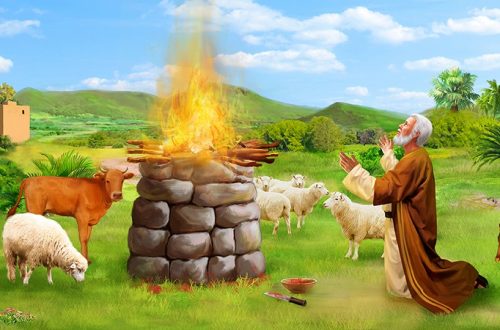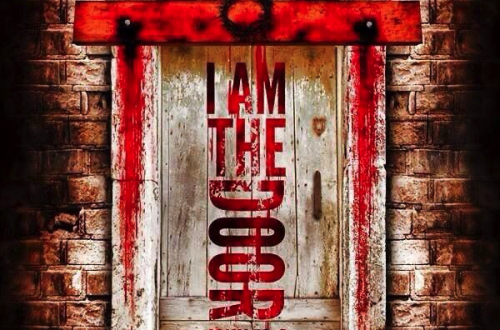Good News – Leviticus 23 (Tabernacles)
Lev 23:33-43 And the Lord spoke to Moses, saying, “Speak to the people of Israel, saying, On the fifteenth day of this seventh month and for seven days is the Feast of Booths [or Tabernacles] to the Lord. On the first day shall be a holy convocation; you shall not do any ordinary work. For seven days you shall present food offerings to the Lord. On the eighth day you shall hold a holy convocation and present a food offering to the Lord. It is a solemn assembly; you shall not do any ordinary work.
Lev 23:33-43 And the Lord spoke to Moses, saying, “Speak to the people of Israel, saying, On the fifteenth day of this seventh month and for seven days is the Feast of Booths [or Tabernacles] to the Lord. On the first day shall be a holy convocation; you shall not do any ordinary work. For seven days you shall present food offerings to the Lord. On the eighth day you shall hold a holy convocation and present a food offering to the Lord. It is a solemn assembly; you shall not do any ordinary work.
“These are the appointed feasts of the Lord, which you shall proclaim as times of holy convocation, for presenting to the Lord food offerings, burnt offerings and grain offerings, sacrifices and drink offerings, each on its proper day, besides the Lord’s Sabbaths and besides your gifts and besides all your vow offerings and besides all your freewill offerings, which you give to the Lord.
“On the fifteenth day of the seventh month, when you have gathered in the produce of the land, you shall celebrate the feast of the Lord seven days. On the first day shall be a solemn rest, and on the eighth day shall be a solemn rest. And you shall take on the first day the fruit of splendid trees, branches of palm trees and boughs of leafy trees and willows of the brook, and you shall rejoice before the Lord your God seven days. You shall celebrate it as a feast to the Lord for seven days in the year. It is a statute forever throughout your generations; you shall celebrate it in the seventh month. You shall dwell in booths for seven days. All native Israelites shall dwell in booths, that your generations may know that I made the people of Israel dwell in booths when I brought them out of the land of Egypt: I am the Lord your God.”
Introduction
Tabernacles is also called Booths, or sometimes Ingathering (eg. Ex 23:16). The Hebrew name is Succoth. It literally means dwelling place. With respect to its initial institution by Moses, v42 instructs the people to live in booths for the duration of this 8-day feast. A booth is tent or otherwise temporary dwelling place. The people construct these tents in the days between Atonement and Tabernacles. The first and last days are called Sabbaths (Shabbathon is the Hebrew used in v39, a form of Shabbath specifically meaning the practice of observing Sabbath, although it is translated “solemn rest” in ESV) and are treated as such. Tabernacles, along with Passover and Weeks, are feasts requiring the attendance of all the men of Israel. This is the only feast lasting 8 days and the only one with a holy convocation specifying Sabbath observance on both the first and the last day.
The First Thanksgiving, God Style
I think of the Feast of Tabernacles as being a bit like America’s Thanksgiving celebration, only it’s in a fashion ordained by God. The harvest has been brought in and it’s a time to celebrate the bounty God has blessed the people with. All the people come together to enjoy this time. After humbling ourselves through repentance and atonement the time has come to celebrate life and enjoy the gifts of God.
Exodus Memorial
Lev 23:43 that your generations may know that I made the people of Israel dwell in booths when I brought them out of the land of Egypt: I am the Lord your God. God wanted future generations to remember the great things He did for Israel. He wanted them to take time from the hustle and bustle of city life and remember what it is like to draw close to Him in the wilderness. The gathering of people serves to remind us that believers in YHWH are united in Him. The booths themselves remind us that during the 40 years in the wilderness the Jews had only temporary homes. The main tabernacle was setup for as long as the group stayed in one place, then was broken down and moved whenever the Spirit of God decided to move. Likewise, the body of people also moved and they lived in easily moved temporary housing we would call tents or, more traditionally speaking, booths.
Tabernacles
Ex 25:8-9 And let them make me a sanctuary, that I may dwell in their midst. Exactly as I show you concerning the pattern of the tabernacle, and of all its furniture, so you shall make it. The original tabernacle was made up of three main parts of specific dimensions and purposes. Solomon completed the first temple constructed as a permanent version of the tabernacle outlined by Moses (1 Ki 5-8). The temple was rebuilt more than 3 centuries later after the Babylonian captivity when the Jews returned to rebuild (see Ezra). The temple or tabernacle had an outer court for the average Jew, the inner court for the priests, and the Holy of Holies where God resided on the Mercy Seat.
New Tabernacle
Jn 2:18-21 So the Jews said to him, “What sign do you show us for doing these things?” Jesus answered them, “Destroy this temple, and in three days I will raise it up.” The Jews then said, “It has taken forty-six years to build this temple, and will you raise it up in three days?” But he was speaking about the temple of his body. This conversation took place after Jesus wrecked the little shopping mall inside the temple. The Jews obviously thought Jesus was talking about the physical temple, but John leaves no doubt Jesus was talking about his body.
Jesus Fulfills Succoth
Jn1:1, 14 In the beginning was the Word, and the Word was with God, and the Word was God. … And the Word became flesh and dwelt among us, and we have seen his glory, glory as of the only Son from the Father, full of grace and truth. The concept of Jesus’ body as a temple is important for several reasons. For one, it’s the reason Christians call their bodies temples based on the premise God’s Spirit resides within our bodies while we live. For another, it is to Jesus we worship, not some building made by human hands. His human body was a temporary dwelling place (Succoth) for God.
Side note: Some believe Jesus may actually have been born on the first day of the Feast of Tabernacles and was circumcised 8 days later on the last day of the feast. While this is only a theory, it happens to fit nicely with the idea of Jesus’ body being a “booth” (temporary dwelling place) for God.
The Feast & The Future
As if a memorial and first fulfillment weren’t enough, there’s just cause for believing this last feast is prophetic of something still to come.
Lev 23:40 And you shall take on the first day the fruit of splendid trees, branches of palm trees and boughs of leafy trees and willows of the brook, and you shall rejoice before the Lord your God seven days. This feast is the only one to mention taking fruit from splendid trees. This is done on the first day. God tells us there are other things done on other days, but this is only one called out in this chapter of Leviticus.
Rev 22:14 Blessed are those who wash their robes [some ms: do his commandments], so that they may have the right to the tree of life and that they may enter the city by the gates. It seems to me the fruit Moses referenced foreshadows the fruit John references. This feast is truly a feast on food of the very best kind. By the time we eat from the Tree of Life we will be regenerated incorruptible and pure, able to be in the presence of God for eternity. The latter part of this verse also addresses the matter of the Succoth, which is to say the dwelling place. Our tent is our present body. We are sojourners here on earth, temporary visitors camping in temporary tents. Those who “wash their robes” will one day move to the permanent home prepared for us by Jesus (Jn 14:2).
Good News of Tabernacles
This is the revelation of the Feast of Tabernacles, that our permanent tabernacle — our home in heaven — awaits after we repent and accept the substitutionary atoning sacrifice of the Lamb of God, Jesus. Jesus said we must be born again. To be born again means to become alive in the Spirit. This in turn means accepting Jesus as Lord and submitting to his authority as a servant. His love is so great that he not only accepts us as his servant, but adopts us as his children. As he is eternal, he promises to make us eternal. As a loving father we are welcome in his home where we and our home are all eternal. To accept this gift and allow the Spirit to come into you, to change you, to recreate and regenerate your soul, to willingly bow to his supreme authority and earnestly seek his will in love seems so small a thing by comparison. Nothing asked of us is bad. No service we can do will ever serve to earn us this salvation, yet it does earn us joy because only good comes from God who is faithful.


